Congou tea is a type of black tea that originated in China and is now enjoyed worldwide for its rich flavor and health benefits. The name “Congou” comes from the Chinese term “gongfu,” which means “skillful work.” This refers to the intricate process of making this tea, which involves withering, rolling, oxidizing, and firing the tea leaves to create a distinct flavor and aroma.
Join us as we explore the different facets of this tea known for its complex taste profile.
Please note: This article contains affiliate links, meaning I may earn a commission if you make a purchase by clicking a link. Of course, this comes at no extra cost to you and helps me keep offering readers solid information.
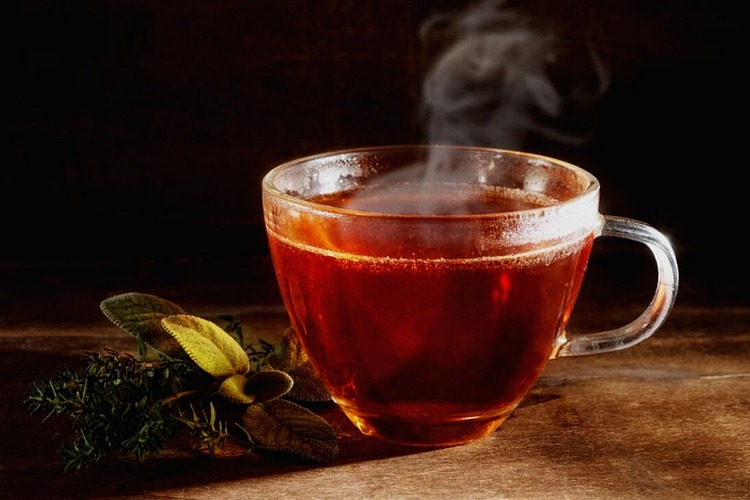
What is Congou Tea?
Congou tea, also known as Gongfu tea, is a type of black tea that originated in China. The name “Congou” comes from the Chinese term “kung fu,” which means “skill” or “effort.”
Chinese black teas are divided into three types: gongfu (congou), xiaozhong (souchong, smoked), and brick tea. Most black teas in the country, including those of the highest quality, are classified as gongfu. Coungou teas are further classified by leaf size and production region.
In terms of tea history, black tea is a “newish” product. There are no exact records of when the production process was developed (green tea was the type of tea produced and consumed for centuries).
In the 17th century, the British East India Company began importing tea from China, and Congou tea quickly became one of the most popular types of tea in Europe. It was prized for its rich flavor and aroma and was often served at high-end social events.
Indian and Sri Lankan black teas may be more popular nowadays, but tea leaves’ complete oxidation process was developed in Fujian. Coungou teas are produced by the ton annually. Some are used in popular blends, such as English Breakfast and Russian Caravan.
Types of Congou Tea
Congou tea is known for its delicious flavor, which is often described as earthy, sweet, and smooth. There are several different types of this tea, each with distinct characteristics.
Keemun Congou
Keemun Congou, also known as Keemun Tea, Qimen Tea, or Qimen Hongcha, is grown in the Anhui Province.
Keemun is known for its unique combination of fruity, floral, and sometimes smoky flavors. It can have a distinct taste of wine, stone fruit, and even hints of cocoa or honey, making it a complex and intriguing tea.
Keemun tea’s popularity has spread beyond China, and it is considered one of the classic black teas in the world. Its distinctive taste, coupled with the careful craftsmanship employed in its production, has earned it a place of prestige among tea enthusiasts.
Tanyang Congou
Tanyang Congou, also known as Tanyang Gongfu, or Panyang Congou, is a premium black tea. It is produced in the Tanyang Village in Fujian Province, renowned for its tea cultivation and traditional tea-making techniques.
When brewed, Tanyang Gongfu tea produces a rich, reddish-brown liquor with a sweet and smooth taste. It is often described as having a delightful combination of fruity and floral notes and a subtle hint of maltiness. The tea is also appreciated for its long-lasting flavor and pleasant aftertaste.
Zhenghe Congou
Zhenghe Congou, also known as Zhenghe Gongfu, is another type of black tea from Fujian Province. Like other congou teas, it is named after the region where it is produced, specifically Zhenghe County. Like Tanyang Congou, it is considered one of Fujian’s three famous black teas.
When brewed, Zhenghe Congou tea produces a rich, reddish-brown liquor with a smooth and mellow taste. It is often praised for its sweet and fruity flavor profile, including notes of ripe plums, honey, and sometimes a subtle hint of chocolate or floral undertones. The tea is known for its full-bodied character and a well-balanced combination of flavors.
Bailin Congou
Bailin Congou, or Bailin Gongfu, is another premium black tea from Fujian (Bailin Town).
When brewed, Bailin Congou tea produces a bright, reddish-brown liquor with a smooth and velvety texture. Its flavor is often sweet and mellow, with notes of dried fruit, honey, and sometimes hints of cocoa or floral undertones.
Dianhong Congou
Dianhong Congou or Yunnan Dianhong is a black tea from the Yunnan Province.
Dianhong tea is made from the leaves of the Camellia sinensis tea plant, specifically from the large-leaf tea cultivar known as “Yunnan Big Leaf.” This cultivar is unique to the Yunnan region and contributes to the distinct characteristics of Dianhong tea.
Dianhong tea is known for its beautiful appearance, comprising dark, slender, and golden-tipped leaves that create a visually appealing brew. When steeped, it produces a bright reddish-brown liquor with a smooth and robust flavor. The taste of Dianhong is often described as rich and full-bodied, with malty and sweet undertones, sometimes accompanied by subtle hints of dried fruit or caramel notes.
Yingdehong Congou
Yingdehong Congou, also known as Yingde Black Tea, is a type of black tea that hails from Yingde County in Guangdong Province.
When brewed, Yingdehong Congou tea yields a reddish-brown liquor with a smooth and mellow taste. It is often appreciated for its rich and aromatic flavor, featuring notes of dried fruit, caramel, and a subtle hint of maltiness. The tea is well-balanced and satisfying, making it a favorite among black tea enthusiasts.
Yingdehong Congou is a relatively new type of tea that is quickly gaining popularity among tea enthusiasts.
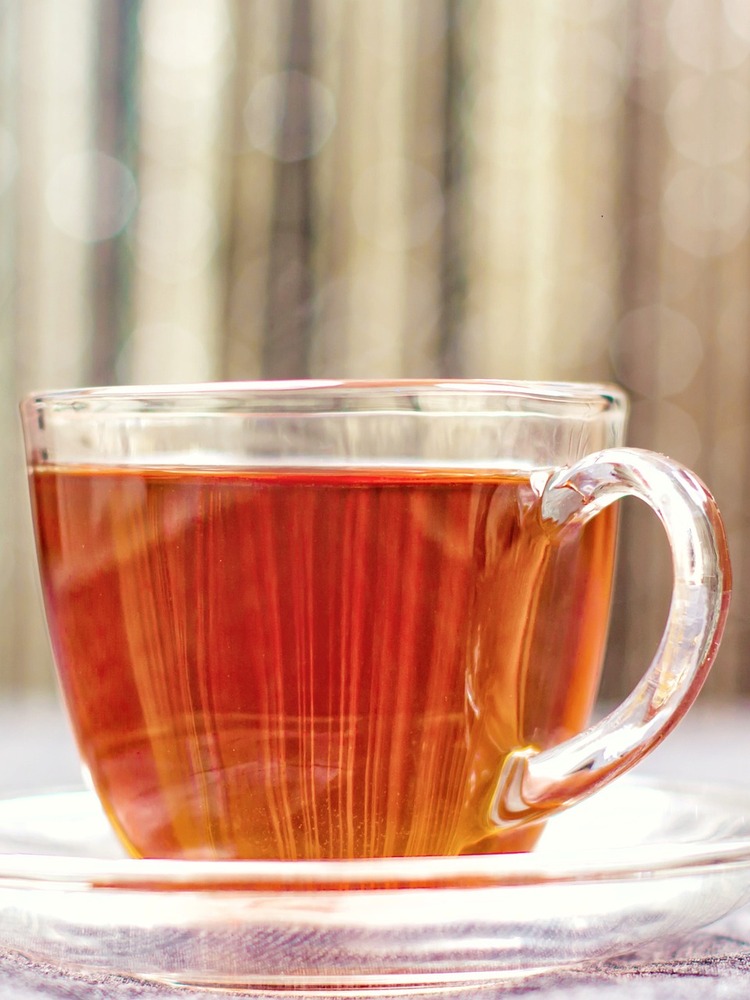
Congou Tea Taste and Aroma
Congou tea is well-known for its rich and complex flavor profile. It is a full-bodied tea with a smooth, mellow taste that is not too bitter or astringent. The tea has a sweet, fruity aroma reminiscent of raisins or plums.
The taste of this tea varies depending on the specific type of tea and the region in which it was grown. For example, Keemun Congou tea has a slightly smoky flavor with hints of chocolate and orchid, while Yunnan Congou tea has a rich, earthy flavor with notes of honey and malt.
Some people describe the taste of Congou tea as “musky” or “woody,” while others find it to be more floral or fruity. Overall, Congou is a complex and nuanced tea that will surely please any tea lover.
In terms of aroma, Congou tea is known for its sweet, fruity scent. This aroma is created by the natural oils and compounds found in the tea leaves. When brewed, the aroma of the tea fills the room with a pleasant and inviting scent that will awaken the senses.
Brewing Process of Congou Tea
Tea Leaves Selection
Before brewing, selecting the right tea leaf type is important.
The best Congou tea leaves are harvested in the spring and early summer. The leaves should be whole, unbroken, and uniform in size. The color of the leaves should be dark green, and they should have a fresh, floral aroma.
Brewing Techniques
To brew Congou tea, follow these steps:
- Boil water to 212°F (100°C).
- Rinse the teapot or brewing vessel with hot water to warm it up.
- Add one teaspoon of tea leaves per cup of water to the pot or brewing vessel.
- Pour the hot water over the tea leaves.
- Steep the tea for 3-5 minutes. The longer the steeping time, the stronger the tea will be.
- Strain the tea into a cup or teapot.
- Enjoy the tea, hot or cold.
It is important to note that the water temperature, steeping time, and amount of tea leaves used can be adjusted to personal preference. Some people prefer a stronger tea and may use more tea leaves or steep the tea longer. Others may prefer milder tea and use less tea leaves or steep the tea for a shorter period.
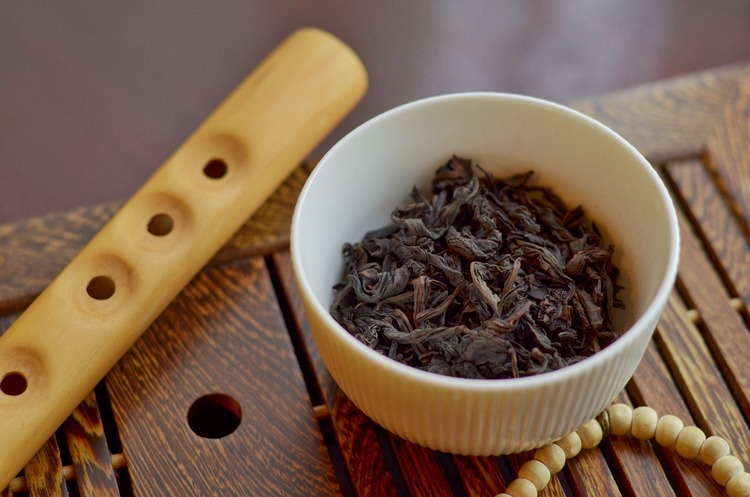
Health Benefits of Congou Tea
Congou tea offers several health benefits. Here are some of its benefits:
- Boosts Immune System: Contains antioxidants that help protect the body from harmful free radicals. These antioxidants also boost the immune system, making it more resistant to infections and diseases.
- Promotes Heart Health: This tea has been shown to lower cholesterol levels and reduce the risk of heart disease. It contains flavonoids that help improve blood flow and reduce inflammation, which can help prevent heart attacks and strokes.
- Aids Digestion: Contains tannins, which are natural compounds that help improve digestion. Tannins help reduce inflammation in the digestive tract and can help relieve symptoms of indigestion, bloating, and constipation.
- Reduces Stress and Anxiety: Contains L-theanine, an amino acid that helps reduce stress and anxiety. L-theanine promotes relaxation and can help improve sleep quality.
- May Help Prevent Cancer: Contains polyphenols, natural compounds shown to have anti-cancer properties. Polyphenols help prevent the growth and spread of cancer cells and may help reduce the risk of certain types of cancer.
Pairing Congou Tea with Food
Congou tea is a versatile tea that pairs well with various foods. Its complex flavor profile makes it a great choice for pairing sweet and savory dishes. Here are a few suggestions for pairing this tea with food:
Sweet Pairings
Regarding sweet pairings, Congou tea pairs well with desserts with a rich, creamy texture. The bold flavor of the tea can stand up to the sweetness of desserts like chocolate cake, cheesecake, and crème brûlée. It also pairs well with fruity desserts like berry tarts and fruit pies.
Savory Pairings
This tea also pairs well with savory dishes. Its bold flavor can complement the rich flavors of meats like beef, pork, and duck. It also pairs well with spicy dishes like curries and stir-fries. It can also be paired with cheese and crackers for a quick and easy snack.
Other Pairings
In addition to sweet and savory pairings, Congou tea can be paired with other foods. For example, it can be paired with nuts and dried fruit for a healthy snack. It can also be paired with bread and butter for breakfast or afternoon snacks.
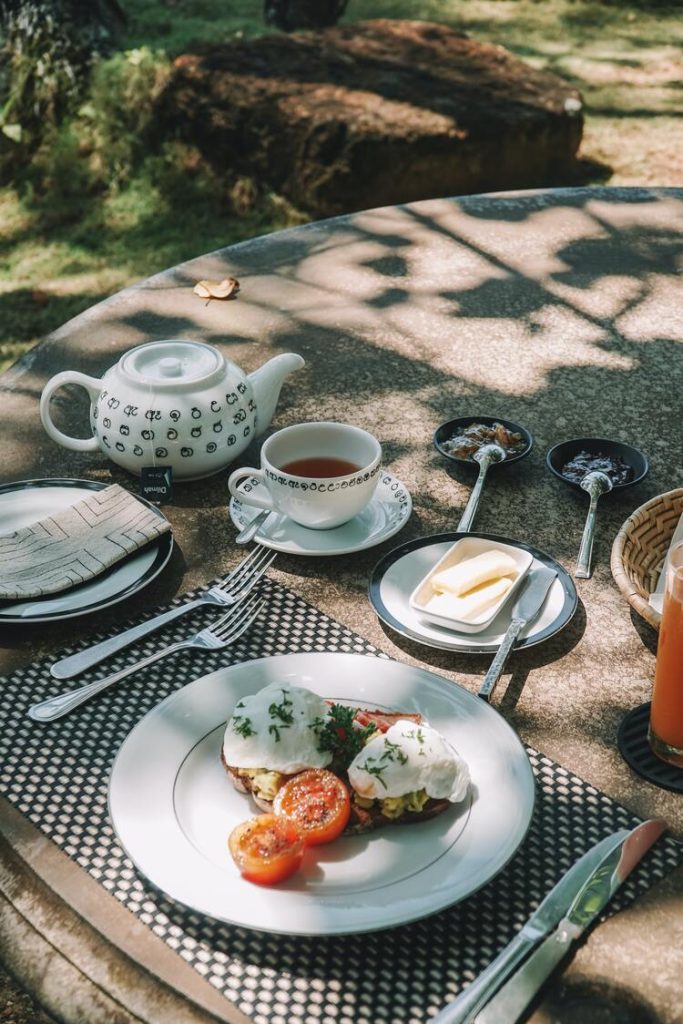
Storing Congou Tea
When it comes to storing Congou tea, there are a few things to keep in mind to ensure that the tea stays fresh and maintains its flavor. Here are some tips on how to store this tea:
- Keep the tea away from light: Light can cause the tea to deteriorate and lose its flavor. It is best to store the tea in a dark, cool place, such as a pantry or cupboard.
- Use an airtight container: Oxygen can also cause the tea to lose its flavor. It is best to store the tea in an airtight container to prevent oxygen from getting in.
- Avoid moisture: Moisture can cause the tea to become moldy or stale. It is best to store the tea in a dry place, away from any moisture.
- Don’t store near strong odors: Tea can absorb the flavors of other foods and spices, so it is best to store the tea away from strong odors.
- Use the tea within a reasonable time frame: While black tea can last for a long time if stored properly, it is best to use the tea within a reasonable time frame to ensure that it is still fresh and flavorful.
Buying Guide for Congou Tea
When it comes to buying Congou, there are several factors to consider to ensure that you are getting the best quality tea. Here are some tips to help you choose the right tea:
Origin and Quality
One of the most important factors to consider when making a purchase is the tea’s origin and quality. Look for teas that are grown in reputable regions such as Fujian, Anhui, and Yunnan. Additionally, make sure that the tea is made from high-quality tea leaves that are plucked during the right season.
Grade and Flavor
The tea is graded based on the size and shape of the tea leaves. The higher the grade, the better the quality of the tea. Look for teas that are graded as “Finest” or “Special” for the best quality. Congou tea also comes in different flavors such as smoky, earthy, and fruity. Choose a flavor that suits your taste preferences.
Packaging and Storage
The packaging and storage of the tea are also important factors to consider. Look for teas that are packaged in airtight containers to ensure freshness. Additionally, make sure that the tea is stored in a cool and dry place away from sunlight.
Price
Finally, consider the price of the tea. While high-quality tea can be expensive, it is important to avoid teas that are priced too low. Low-priced teas are often of poor quality and may not provide the full flavor and health benefits of high-quality Congou tea.
A great place to buy this tea is at specialty tea shops. These shops often carry a wide variety of tea blends. Specialty tea shops are also the place to ask questions and get recommendations from knowledgeable staff members who can help you find products according to your preferences and budget.
If visiting a specialty tea shop is not a viable option, you can look for reputable online tea shops or retailers. You can also read reviews from other customers to get an idea of the quality of the tea and the seller’s reliability.
If you are interested in buying online, please consider the recommendations below.
Davidson’s Organics, Keemun Congou, Loose Leaf Tea

Cha Wu-[C] FengQing DianHong Black Tea

The Republic of Tea Black Full-Leaf Loose Tea

Frequently Asked Questions
What is the history of Congou tea?
Congou tea, also known as Gongfu tea, is a type of black tea that originated in China. The name “Congou” comes from the Chinese term “kung-fu,” which means “skill” or “effort.” Congou tea was initially produced for export to Europe, where it became trendy due to its rich flavor and aroma.
What are the health benefits of Rose Congou tea?
Rose Congou is a type of flavored tea that is infused with rose petals. It is known for its delicate floral aroma and sweet taste. Some of the health benefits of Rose Congou include reducing stress and anxiety, improving digestion, and boosting the immune system. It is also rich in antioxidants, which can help prevent chronic diseases such as cancer and heart disease.
What is the difference between Congou tea and Keemun Congou tea?
Keemun Congou tea is a type of Congou tea produced in China’s Anhui province. It is known for its mellow, fruity flavor and aroma. Congou is one of the three types or classifications of black tea. Several types of Congou teas are mainly identified by their place of origin.
How do you pronounce Congou tea?
Congou tea is pronounced “kong-goo” tea. It is important to note that the pronunciation may vary depending on the region and dialect of the speaker.
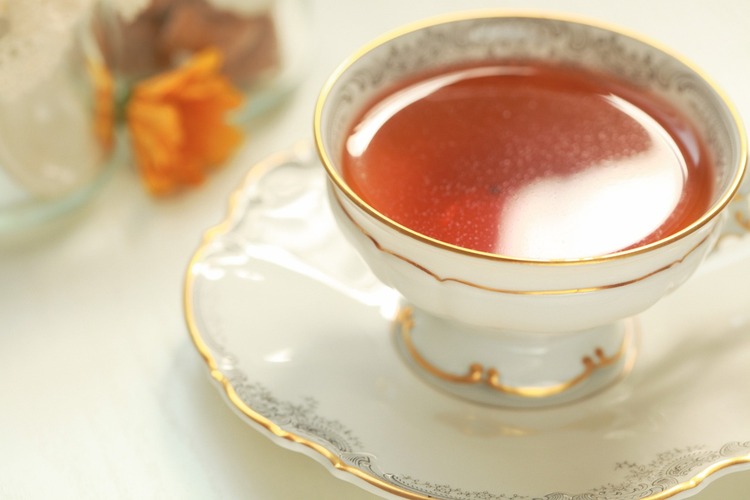
I hope you have enjoyed the article and learned something new! See you later!
Have you tried this tea?
More About Black Tea
The Process of Making Black Tea